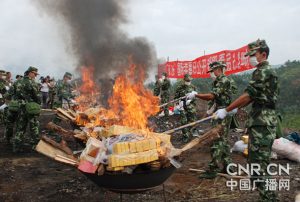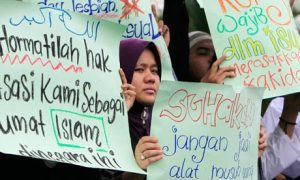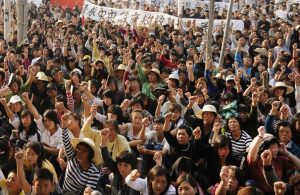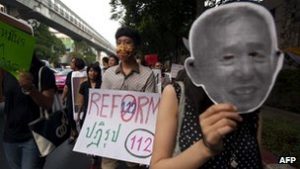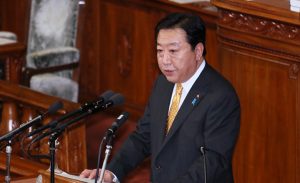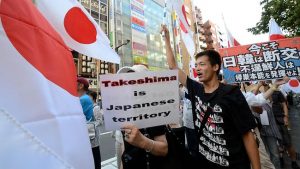Mongolia: Gauging Inner Asian Tensions over Railways
Broad gauge or standard gauge railway? This domestic Mongolian debate reflects Inner Asian ambivalence toward economic opportunities through engagement with China, as well as broader geopolitical and economic competition between Russia and China. After he was fired from the post of Director of the Mongolian Railway on January 10, former Prime Minister M. Enkhsaikhan criticized the government’s plan to extend the domestic broad (Russian) gauge railroad network. Instead, he argued for a 267 km standard (Chinese) gauge railroad from Tavan Tolgoi, a coal mining deposit, to Gashuun Sukhait, a Sino-Mongolian border post. With this argument Mr. Enkhsaikhan triggered another round of the debate over narrow vs. broad gauge.
Methamphetamine Smuggling along the Myanmar-China Border Threatens Local Communities
The Golden Triangle, the mountainous region bordering Myanmar, Vietnam, Laos and Thailand, is known as a major centre for drug production. Since Khun Sa, kingpin of the region’s heroin trade, was forced into retirement in 1996, large-scale production of methamphetamine has developed along the Myanmar-China border. Unlike heroin, methamphetamine can be created from commercially available chemicals, commonly found in cold and flu medications. The easy availability of raw materials means that the profits generated from the production of methamphetamine are higher than those from heroin.
Reform in Malaysian Party Politics: Reasons for Slow Change in UMNO
Trying to reform a dominant political party by changing the status quo can precipitate conflict and instability, particularly if conservatism has become ingrained in its political practices. One such dominant party, the United Malays National Organization (UMNO), has been beleaguered by vociferous calls for reform since its uncharacteristically mediocre performance in Malaysia’s general elections of March 2008. As the commanding group in the Barisan Nasional coalition, which has ruled Malaysia continuously since 1957, the UMNO has not been confronted with any serious challenge to its uninterrupted hold on power, particularly during the twenty-two-year rule of political strongman Mahathir Mohamad (1981-2003).
Collective Protests in China and India: Unexpected Similarity?
Collective protests against corruption and land grabs are widespread in both China and India. The official Chinese Academy of Social Sciences reported that the government spent $110 billion on containing these and related popular protests in 2011, more than the defense budget. Many argue that disruptive protests erupt because there are no effective institutional channels, such as the judiciary, for expressing grievances in China. However, in neighboring India, the world’s biggest democracy where such channels do exist, people similarly express their discontent through disruptive protests. Though not yet systematically counted, disruptions, both violent and non-violent, are an essential characteristic of Indian democracy.
China’s Liberalizing Impact on Global Commodity Markets
Memo #195 – China played a key part in the recent collapse of the iron ore pricing regime. This was an unintended consequence of a mix of bold negotiating tactics and competing domestic interests, which made it difficult to implement a consistent international procurement policy. Chinese actions destabilized global market institutions and paradoxically caused their liberalization.
Thailand Increases Controls on Cyberspace Through Use of Archaic Laws
Memo #193 – Laws meant to protect the monarchy from “defamation” are increasingly being used to suppress free speech and discussion of politics in Thailand, particularly on the Internet. In the last six years, there has been a surge in prosecution of these “lèse-majesté” cases – some estimated as high as 1,500 per cent.
Senkaku Dispute: the Fallacy of seeing a Monolithic Japanese Government
Memo # 189 – Foreign policy may not be the result of a rational, calculated, and well-coordinated act. Instead, it may stem from messy domestic politics or bureaucratic inertia and oversight. This idea applies to the Japanese government’s actions in the Senkaku dispute, even though critics paint a portrait of a monolithic Japanese government masterminding a Senkaku strategy.
Buddhist Monks and Militant Violence in Laos
Memo #185 – Many, especially outside Asia, are under the mistaken impression that Buddhists are inherently non-violent, especially in comparison with other world religions such as Christianity and Islam. Despite this impression, violence is often linked with Buddhism and perpetrated by Buddhists. Monks in Theravada lineages are not allowed to directly engage in violence, but some have become involved with militancy. Although I am unaware of any Lao monks who have directly participated in violent acts, a few have been shot in Thailand by those opposed to them for providing support to insurgents. This indicates that their support is perceived as substantial and significant.
Tokdo/Takeshima Island Dispute: A Call for Educators to Act towards Mutual Understanding
Memo #184 – The tiny island that lies between Japan and Korea – Takeshima (竹島) in Japan and Tokdo (독도) in Korea – is at the centre of a territorial dispute and serious bilateral tension. This is nothing new. The island, along with other remnants of Japan’s colonial aggression in Korea, has sparked diplomatic issues throughout postwar history. Despite unprecedented levels of cultural, academic, and economic exchange between the two nations, the dispute continues to be defined by a persistent legacy of colonialism and growing nationalism. Japanese and Korean political leaders demand that educators legitimate territorial claims by including these in their national curricula. But if educators comply uncritically, we will undermine future generations’ development of mutual understanding and respect.
竹島・獨島(ドクト)領土問題で教育の果たす役割とは:日韓相互理解へ向けて
Memo #184 (English translation available) – 日本と韓国の間に浮かぶ小島 ―日本側呼称は竹島、韓国側呼称は獨島(トクト)― を巡る領有権争いが、二国間に緊張関係をもたらしている。もちろん、この手の問題は何も目新しいことではなく、今件のような日本の過去の植民地政策の残滓は両国間の外交問題として戦後たびたび浮上してきた。今回の緊張関係に目新しい点があるとすれば、近年日韓の距離がとりわけ文化面において急速に縮まった中で、これが生じている点であろう。交流増加の一方で、依然として二国関係が過去の暴力の記憶と内向きなナショナリズムによって規定されていることを、今回の出来事は物語っている。領土問題が外交問題化するや否や、両国の政治家たちは挙って自己の領有権を正当化することを教育現場に指示した。だが教師たちがこの方針に無批判に従うならば、二国間の相互理解と尊重を将来の世代に育むという理想は更に遠のいてしまう。

